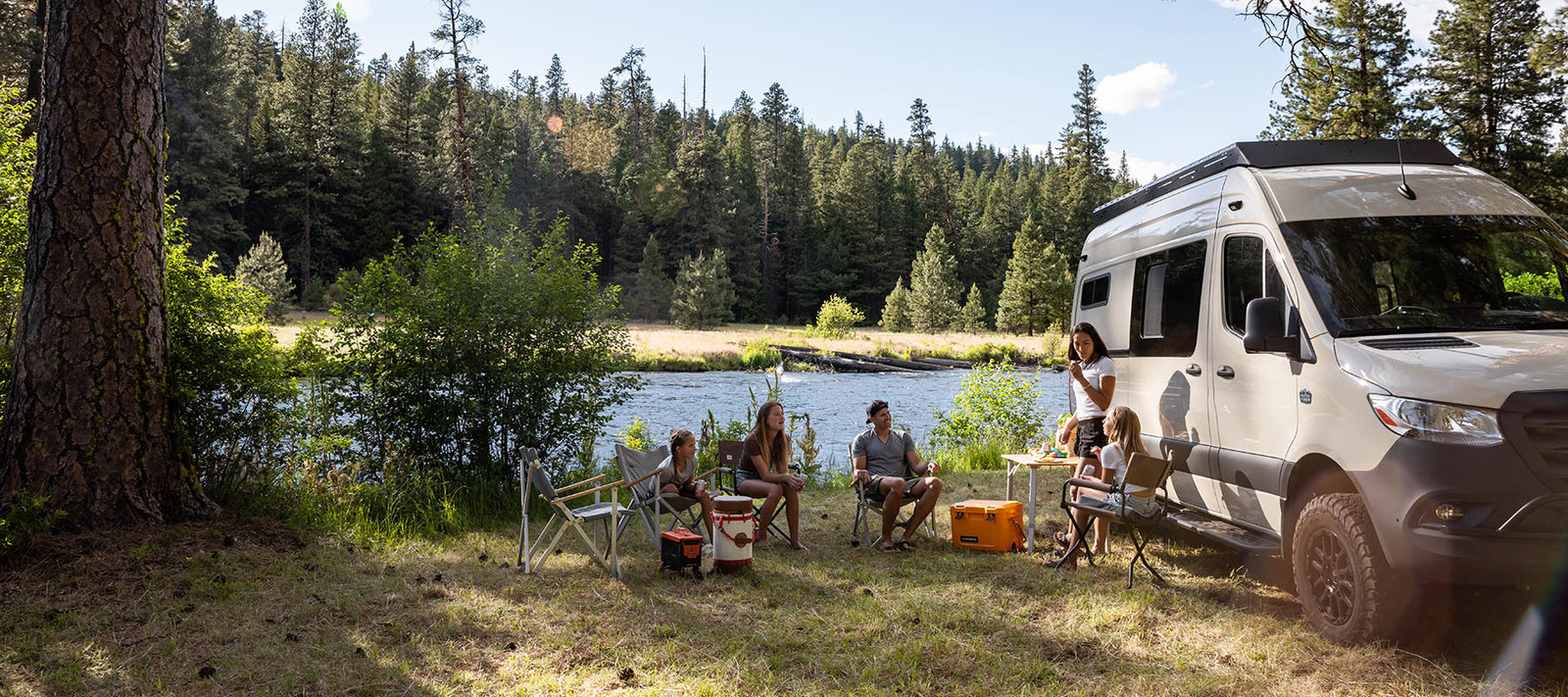Your Cart is Empty
July 25, 2024 3 min read
Simplify your culinary game (and your night in the woods!), by making a detailed checklist of all the items you need to pull off your camping meals. Note how many meals you'll be spending at camp and prioritize ingredients that can work for for all (for example, oats are great for breakfast, but can also function as a savory grain for dinner and lunch). Remember to pre-cook items like rice and pasta to avoid wasting valuable resources and remove one prep step in the process!
2
Don't get stuck out in the woods in the dark! Make sure to pack headlamps (an extra one will never hurt), batteries, and lanterns to illuminate your next outdoors getaway and make that midnight bathroom run a little easier. A little light can go a long way.
Always be ready for sudden weather changes by packing appropriate clothing and gear. Layer your clothing and bring rain gear to stay comfortable and dry. There's also no shame in checking those weather reports ahead of time and assuming things might get a little colder at night. Better comfortable than unprepared!
Sleeping away from home doesn't mean you have to ditch a good night's sleep. Pack a HEST mattress and bring the comfort of home out into nature. You'll be glad you did.
While we love the freedom of the outdoors, it can be hard to maintain comfort when weather takes a turn for the worse. Establish a plan for keeping things dry, whether that be packing some dry bags for essential electronics, goods, and food or setting up tarps to create a covered eating area. Waterproof gear is a huge plus, and don't forget the tent rainfly—it's a trip saver.
Bring and drink plenty of water. Always try and pack a reliable water filtration system just in case. You don't want to get caught out without a way to stay adequately hydrated.
Don't underestimate a good campsite! Select a spot that suits your needs, such as proximity to water, shade, and flat ground for setting up your tent. Check ahead of time to find a location with the amenities and environment that match your comfort level and reserve where you can. If it's a popular dispersed camping area, send someone ahead to secure your spot.
Keep your campsite tidy by designating specific areas for cooking, sleeping, and gear storage. Use containers and bags to keep your items organized and easily accessible. Planning this ahead of time can reduce headache and turn your camping game into a well-oiled machine.
Familiarize yourself with your camping gear by practicing setting up your tent, HEST mattress and other equipment at home. This reduces stress and ensures you can efficiently set up camp, even in when the storm clouds move in or night comes a little quicker than expected.
Follow the Leave No Trace principles by packing out all trash, minimizing campfire impact, and respecting wildlife. That includes considering bringing along a bear canister and learning the proper backcountry bathroom rules and etiquette for your camp zone. This ensures the campsite remains pristine for future campers and protects the environment.
